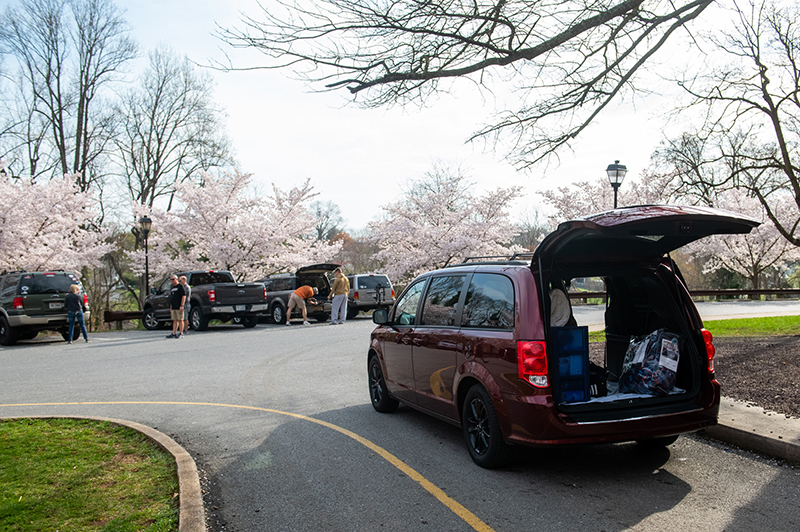The Virginia Foundation for Independent Colleges has created a $500,000 COVID-19 Emergency Assistance Fund to offer short-term relief for undergraduate students at VFIC schools impacted financially by the pandemic.
The emergency fund will help students at 15 VFIC member institutions, including the University of Lynchburg, “mitigate any adverse financial consequences resulting from the ongoing health care crisis,” according to a VFIC press release.

“As events unfolded, our presidents canceled athletic events, classes, graduation ceremonies; they wisely closed their schools for the academic year,” VFIC President Matt Shank said in the press release. “Their quick action helped protect students. The quick response of our executive committee and staff has done the same.”
After inviting proposals from all 15 schools that explained the financial needs of their students, the VFIC will provide $33,333 in emergency funding for each institution by April 15.
University of Lynchburg President Dr. Kenneth Garren is grateful for the support.
“The leaders at VFIC headquarters were very quick to react to the needs of our students,” Garren said. “On March 25, Dr. Shank notified me that VFIC emergency assistance grants would be available to provide relief to our undergraduate students. Within two days, I responded with my appreciation on behalf of the University of Lynchburg and requested that my message serve as the initial response for our need of $33,000.”
In addition to the University of Lynchburg, VFIC members include Bridgewater College, Emory & Henry College, Hampden-Sydney College, Hollins University, Mary Baldwin University, Marymount University, Randolph College, Randolph-Macon College, Roanoke College, Shenandoah University, Sweet Briar College, University of Richmond, Virginia Wesleyan University, and Washington and Lee University. Together, these schools educate more than 29,000 students, 24,000 of whom are undergraduates.
There are some caveats relating to the funds. Funding must be used to support undergraduate students impacted financially by the crisis. That could include covering the cost of shelter for foster, homeless, and international students, or facilitating transportation for students returning home. Funds may also help students pay for shipping personal belongings home, as well as providing storage.
Schools must use their funds by Aug. 15 and submit a report detailing how they allocated their funds, and the impact the money had on students.
“We believe that each day brings us closer to resolving the medical aspect of this crisis,” Shank said. “But the financial impact is another matter. Unexpected expenses, not to mention unanticipated unemployment, can have a long-term financial effect on students and their families, as well as the communities they call home.
“The VFIC intends to stand in the gap. Through this funding, we can create some financial stability in the lives of our students and encourage them to look to the future with hope.”
For more information, contact Shank at 804.288.6609 or shank@vfic.org.

